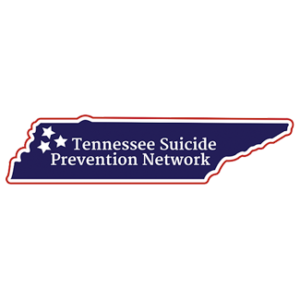Suicide Prevention
The University of Tennessee promotes positive mental health among its employees and seeks to prevent suicide through collaborative, system-wide efforts to:
- Strengthen practices relating to suicide prevention and mental health services
- Reduce the stigma surrounding mental health issues by providing education to the University community
- Promote help-seeking behaviors among our employees
National Resource
National Suicide Prevention Network
Call or text 988 or chat 988lifeline.org
Statewide Resources

Tennessee Suicide Prevention Network
Call 1-800-273-TALK (1-800-273-8255) or text 988 (SMS)
tspn.org
Text TN to 741741
Available 24 hours a day to help anyone experiencing suicidal thoughts or a mental health crisis.

State of Tennessee Employee Assistance Program
1-855-Here4TN (1-855-437-3486)
here4tn.com
Offers free, confidential assistance to employees and their families and provides a wide range of resources to support employees dealing with many challenges, including but not limited to:
- Suicidal thoughts
- Grief and loss
- Depression, anxiety and stress
- Family concerns
UT System Resources
All employees of The University of Tennessee may access the following resources on each of our campuses if they are having suicidal thoughts. You do not need to be an employee of a campus to use these resources.
Employee Support Resources
UTK
UT Knoxville offers a variety of support resources for faculty and staff in distress. The 946-CARE (865-946-2273) program is available twenty-four hours a day, seven days a week, providing care and support to employees. Suicide prevention resources are available through the Employee Assistance Program (www.here4th.com) as well as campus and community resources.
For more information, visit hr.utk.edu or contact hr@utk.edu.

Crisis Prevention – UTC
UT Chattanooga offers a dedicated crisis prevention phone care line for distressed faculty and staff to seek resources: utc.edu/crisis-prevention/. UTC’s website also has information on the Employee Assistance Program (EAP) and suicide prevention services offered to employees: utc.edu/human-resources/total-compensation/benefits/wellness.php

Care Team – UT Southern
The UT Southern Care Team has resources for students, faculty and staff facing a crisis.
Visit the UT Southern Suicide Prevention Plan.

Care Team – UT Martin
The UT Martin Care Team has resources for students, faculty and staff facing a crisis.
Visit care.utm.edu

Suicide Prevention Resources – UTHSC
UT Health Science Center offers suicide prevention training and dedicated phone lines for employees and students to get help. UTHSC’s website also has an extensive list of resources and support services.
More information at UTHSC.edu
Prevention
Employee Assistance Program
The University of Tennessee provides an Employee Assistance Program through the State of Tennessee. Employees who feel stressed, depressed, anxious, or have other concerns are encouraged to use the EAP hotline as early as possible. You should not wait until you are having suicidal thoughts – get help as soon as possible. The EAP number is 1-855-Here4TN, or 855-437-3486.
Here4TN Suicide Prevention flier
Training and Awareness
Suicide preparedness is one of the best ways to prepare to assist a colleague who may be struggling with suicidal thoughts. Commit to learning the symptoms of depression and warning signs of suicide. Register for training through the Tennessee Suicide Prevention Network.
Intervention
Pay Attention to Warning Signs
Suicide affects people of all ages and backgrounds, and every distressed individual has different circumstances that impact his or her life. However, many distressed individuals display behaviors that may deliberately or inadvertently signal their suicidal intent.
Such warning signs include:
- Talking about wanting to die or to kill themselves (This may be stated directly–“I’m going to kill myself.” Or indirectly– “You would be better off without me,” or, “Soon you won’t have to worry about me anymore.”).
- Looking for a way to kill themselves, like searching online or buying a gun. (The more specific the plan, the more serious the intent and risk of harm).
- Talking about feeling hopeless or having no reason to live.
- Talking about feeling trapped or in unbearable pain.
- Talking about being a burden to others.
- Increasing the use of alcohol or drugs.
- Acting anxious or agitated; behaving recklessly.
- Sleeping too little or too much.
- Withdrawing or isolating themselves.
- Showing rage or talking about seeking revenge.
- Having extreme mood swings.
- Giving away belongings or speaking as if they will soon be dying
Understand Risk Factors
Certain risk factors may increase the likelihood that someone in trouble will consider or attempt suicide. These risk factors include:
- Mental disorders, particularly mood disorders, schizophrenia, anxiety disorders and certain personality disorders.
- Alcohol and other substance user disorders
- Hopelessness
- Impulsive and/or aggressive tendencies
- History of trauma or abuse
- Major physical illnesses
- Previous suicide attempts
- Family history of suicide
- Job or financial loss
- Loss of relationships
- Easy access to lethal means
- Local clusters of suicide
- Lack of social support and a sense of isolation
- Stigma associated with asking for help
- Lack of health care, especially mental health and substance abuse treatment
- Cultural and religious beliefs, such as the belief that suicide is a noble resolution of a personal dilemma
- Exposure to others who have died by suicide (in real life or via the media and Internet)
Support Those with Suicidal Thoughts
It can feel overwhelming when someone shares with you that they are having thoughts of suicide. Know that you don’t have to have all the answers or know how to provide any “therapy” to them. Here are some suggested steps:
- Be an active listener – ask questions, get details, probe for more information
- Be supportive and empathetic
- Avoid being judgmental or arguing
- Take them seriously
- Be direct when asking about suicidal intentions; asking does not increase the likelihood that they will act, contrary to common misconceptions, but it enables you and others to get help for them more quickly and effectively
- Evaluate the immediate risk
- Talk with others
Don’t assume someone else will reach out. You can encourage distressed people to make that critical first step. Suggestions include:
- Ask if you can talk in private
- Ask questions to open up the conversation, such as
- How are you doing?
- You haven’t seemed yourself lately. Is everything okay?
- Is anything bothering you?
- Listen to their story and express concern and compassion
- Ask if they are having thoughts of suicide
- Encourage them to seek mental health services
- Be supportive. Show that you care by being present with them. Say, “I care about you.” “You are important to me.”
Postvention
The State of Tennessee’s Employee Assistance Program (EAP), which can be reached at 855-Here4TN (855-437-3486), can offer ongoing support for employees who have either attempted suicide or who are affected by a suicide by another person. For more information, visit www.Here4TN.com.
Additionally, eligible employees who need time away from work to seek mental health treatment may do so by requesting leave under the Family and Medical Leave Act or other University leave policies. For more information, contact your campus human resources office.




